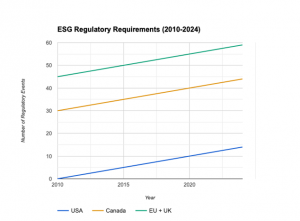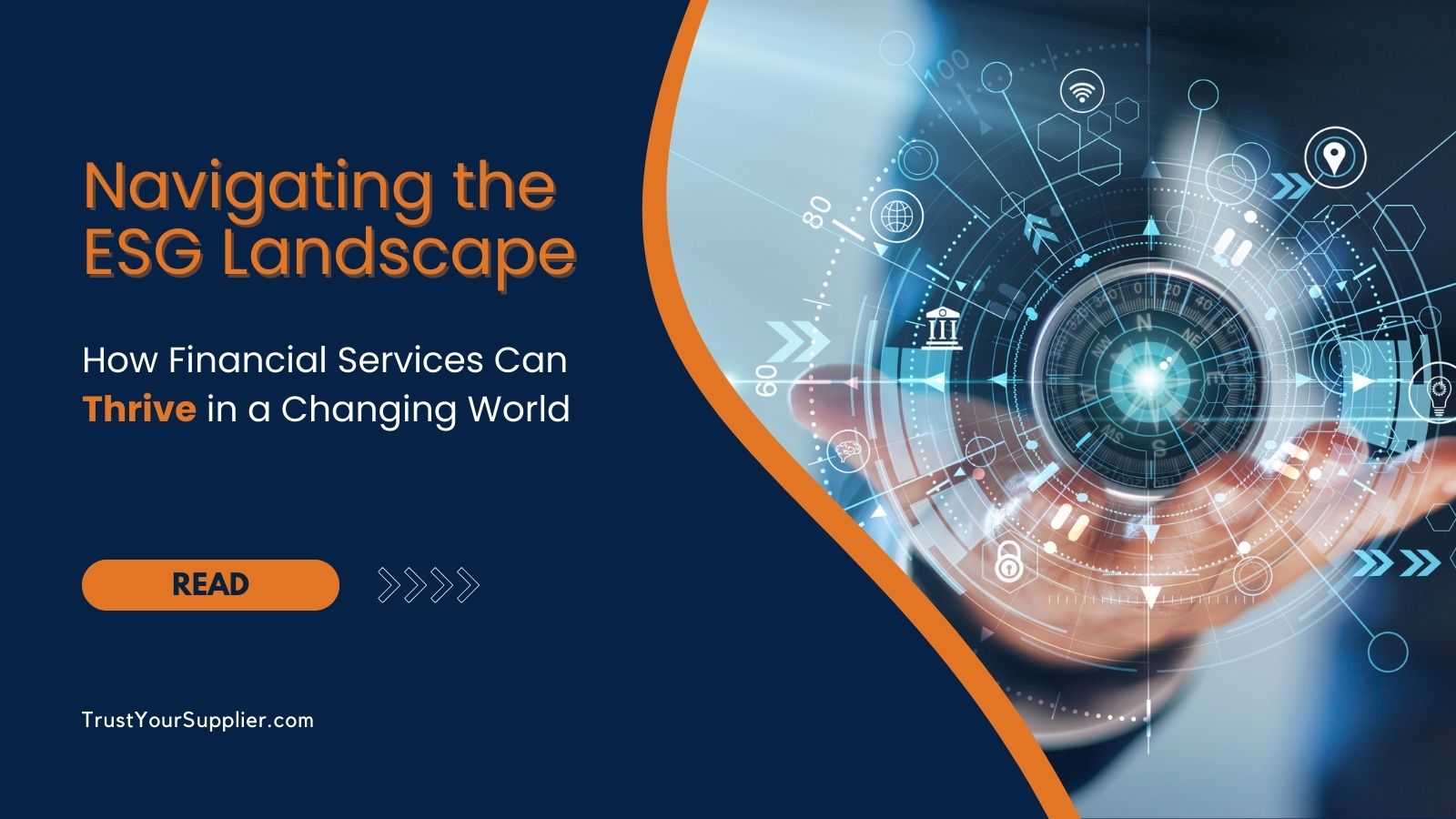by Nick Picone, TYS VP of Advisory Practice, and Michelle Armstrong, TYS Global VP of Value Solutions Consultant
The financial services industry has officially passed a critical inflection point. Climate change and ever-changing environmental, social, and governance (ESG) requirements have quickly reshaped the operating landscape. This accelerating shift demands a proactive approach from banks and other large financial institutions to meet regulatory expectations and harness ESG principles for economic resilience and innovation.
It is no longer an option to sit back and ignore these challenges with regulators, investors, customers and stakeholders who are increasingly scrutinizing ESG integration and climate risk management. The imperative to change becomes even more compelling when confronted with an uncertain economic climate like we face today – where a strategic posture supporting sustainability has proven to foster operational resilience against economic downturns and inflationary pressures.
This article delves into the evolving regulatory landscape, the importance of supplier compliance, and how forward-thinking institutions can leverage emerging technology to navigate this transformative period, thereby driving the results that society now requires and ensuring economic sustainability.

The Coming Regulatory Storm: From OCC to Global Framework
The recent final guidance from the Office of the Comptroller of the Currency (OCC) in the United States and similar global initiatives in the EU underscore the growing focus on two distinct areas climate change and ESG integration. With guidance emphasizing the need for large banks to manage climate-related financial risks more effectively, the message is clear: financial stability and responsible lending practices are now critical business requirements. This regulatory push, combined with the resilience ESG-focused companies have shown during economic downturns, highlights the financial imperative to integrate sustainable practices.
Key Statistics:
- 70% of central banks globally are integrating climate considerations into their supervisory work, reflecting the universal urgency for action. (Source: Network for Greening the Financial System (NGFS), 2023)
- The global sustainable debt market, reaching $1.48 trillion in 2022, signifies investor demand for ESG-aligned investments, a trend expected to grow as consumers increasingly favor sustainable products and services. (Source: Climate Bonds Initiative, 2023)
Moving Beyond Compliance: Embracing ESG as a Core Business Strategy
For financial institutions, integrating ESG into the business extends far beyond compliance; it presents a strategic opportunity to innovate, mitigate risks, and enhance financial performance. Organizations are being presented with a golden opportunity to become more operationally fit. An additional value driver all organizations will benefit from is the enhanced ability to weather economic shocks and inflationary pressures by reducing operating costs and fostering resilience. Aligning with global standards like the EU Taxonomy and SFDR not only demonstrates a commitment to transparency but also attracts eco-conscious customers, offering a competitive edge in an increasingly discerning customer base.
Key Statistics:
- A significant majority of global consumers are willing to pay a premium for sustainable products and services, highlighting the economic benefit of ESG integration. (Source: McKinsey, 2023)
- Companies with robust ESG performance consistently outperform their peers (MSCI, 2023), underscoring the financial rationale for sustainability.
Leveraging Emerging Technology for Transformation
Effective ESG assessments and climate risk management require innovative solutions. Technologies that streamline data management and enhance risk assessment enable financial institutions to navigate the complexities of the ESG landscape quickly and efficiently. By automating compliance and leveraging advanced analytics, institutions can ensure they meet evolving regulatory requirements while driving sustainable growth.
Key Benefits:
- Streamlining data management: Eliminate data silos and consolidate insights from diverse sources, providing a holistic view of ESG performance and climate risks. (Source: McKinsey, 2023)
- Enhancing risk management: Utilize advanced analytics and scenario planning tools to quantify climate-related risks and inform sound decision-making. (Source: McKinsey, 2020)
- Ensuring regulatory compliance: Automate data collection, reporting, and disclosure processes to guarantee adherence to evolving regulations like the EU Taxonomy and SFDR. (Source: Deloitte, 2022)
The Business Case To Support Change
The financial services industry plays a pivotal role in building a sustainable future. Embracing ESG and climate-conscious strategies enables long-term success, mitigates risks, and unlocks future growth. It’s also critical to partner with an emerging technology provider who will support your initiative to integrate ESG into your operational environment. Partnering with a company like TYS and leveraging a best-of-breed approach through third-party data providers like Moody’s, EcoVadis, Rapid Ratings, and Dunn & Bradstreet will ensure your organization not only aligns with regulatory requirements but also contributes to a more sustainable and economically stable future.


0 Comments